The Attention Economy
CRITICAL PERSPECTIVES ON THEORY, CULTURE AND POLITICS
Critical Perspectives on Theory, Culture and Politics is a new interdisciplinary series developed in partnership with the Centre for Critical and Cultural Theory based in the School of English, Communication and Philosophy at Cardiff University, UK. This interdisciplinary series focuses on innovative research produced at the interface between critical theory and cultural studies. In recent years, much work in Cultural Studies has increasingly moved away from directly criticaltheoretical concerns. One of the aims of this series is to foster a renewed dialogue between Cultural Studies and Critical and Cultural Theory in its rich, multiple dimensions.
Series editors:
Glenn Jordan, Reader in Cultural Studies and Creative Practice and Director of Butetown History & Arts Centre, University of South Wales.
Laurent Milesi, Reader in English, Communication and Philosophy and Chair of the Centre for Critical and Cultural Theory, Cardiff University.
Radhika Mohanram, Professor of English and Critical and Cultural Theory, Cardiff University
Chris Norris, Distinguished Research Professor, Cardiff University
Chris Weedon, Chair of the Centre for Critical and Cultural Theory, Director of Postgraduate Studies and Head of the Centre for Critical and Cultural Theory, Cardiff University.
Culture Control Critique: Allegories of Reading the Present, Frida Beckman
Creole in the Archive: Imagery, Presence and the Location of the Caribbean Figure, Roshini Kempadoo
Prometheanism: Technology, Digital Culture and Human Obsolescence, Gnther Anders and Christopher John Mller, translated by Christopher John Mller
The Attention Economy: Labour, Time, and Power in Cognitive Capitalism, Claudio Celis
Postcolonial Nostalgia and the Construction of a South-Asian Diaspora, Anindya Raychaudhuri (forthcoming)
Cultures of the Extreme: From Abu Ghraib to Saw and Beyond, Pramod K. Nayar, (forthcoming)
Credo Credit Crisis: Speculations on Faith and Money, edited by Laurent Milesi, Christopher John Mller and Aidan Tynan (forthcoming)
Materialities of Sex in a Time of HIV: The Promise of Vaginal Microbicides, Annette-Carina van der Zaag (forthcoming)
Performative Contradiction and the Romanian Revolution, Jolan Bogdan (forthcoming)
Partitions and their Afterlives: Violence, Memories, Living, edited by Radhika Mohanram and Anindya Raychaudhuri (forthcoming)
Music, Photography, and the Aesthetics of Time, Peter R Sedgwick and Kenneth Gloag, (forthcoming)
The Attention Economy
Labour, Time and Power in
Cognitive Capitalism
Claudio Celis Bueno

Published by Rowman & Littlefield International Ltd
Unit A, Whitacre Mews, 26-34 Stannary Street, London SE11 4AB
www.rowmaninternational.com
Rowman & Littlefield International Ltd.is an affiliate of Rowman & Littlefield
4501 Forbes Boulevard, Suite 200, Lanham, Maryland 20706, USA
With additional offices in Boulder, New York, Toronto (Canada), and Plymouth (UK)
www.rowman.com
Copyright 2017 by Claudio Celis Bueno
All rights reserved. No part of this book may be reproduced in any form or by any electronic or mechanical means, including information storage and retrieval systems, without written permission from the publisher, except by a reviewer who may quote passages in a review.
British Library Cataloguing in Publication Data
A catalogue record for this book is available from the British Library
ISBN: HB 978-1-78348-823-0
PB 978-1-78348-824-7
Library of Congress Cataloging-in-Publication Data Available
ISBN: 978-1-78348-823-0 (cloth : alk. paper)
ISBN: 978-1-78348-824-7 (pbk. : alk. paper)
ISBN: 978-1-78348-825-4 (electronic)
 The paper used in this publication meets the minimum requirements of American National Standard for Information SciencesPermanence of Paper for Printed Library Materials, ANSI/NISO Z39.48-1992.
The paper used in this publication meets the minimum requirements of American National Standard for Information SciencesPermanence of Paper for Printed Library Materials, ANSI/NISO Z39.48-1992.
Printed in the United States of America
Contents
| AO | Gilles Deleuze and Flix Guattari, Anti-Oedipus |
| ATP | Gilles Deleuze and Flix Guattari, A Thousand Plateaus |
| C | Karl Marx, Capital, volume 1 |
| CPR | Immanuel Kant, Critique of Pure Reason |
| DP | Michel Foucault, Discipline and Punish |
| G | Karl Marx, Grundrisse |
| KPM | Martin Heidegger, Kant and the problem of Metaphysics |
| N | Gilles Deleuze, Negotiations |
| SS | Flix Guattari, Soft-Subversions |
| STP | Michel Foucault, Security, Territory, Population |
| TLD | Moishe Postone, Time, Labour, and Social Domination |
| TT3 | Bernard Stiegler, Technics and Time, volume 3 |
First of all, I would like to thank Dr. Peter Sedgwick for his detailed and patient readings, his guidance, corrections and suggestions, and his always-friendly character. Without his commitment, this book would not have been possible. I would also like to acknowledge the efforts of Dr. Marcelo Svirsky, Prof. Chris Weedon, Dr. Aidan Tynan, Dr. Laurent Milesi, Dr. Iain MacKenzie and Dr. Josh Robinson. I am grateful for their support, their feedback and their advice. I also appreciate the contribution of fellow colleagues, in particular that of Caleb Sivyer, Marija Grech and Jernej Markelj.
I would like to thank the staff and technicians in the School of English, Communications & Philosophy at Cardiff University for all their help. I would like to express special gratitude to Rhian Rattray for her kindness and willingness to help during my time in this institution.
Very special thanks to Mirona Moraru for those innumerable hours of proofreading, guidance, advice and discussion. It would be difficult to imagine this work without her insights, her continuous encouragement, her patience and her always positive spirit.
Finally, I am grateful to CONICYT for sponsoring the research out of which this book was born.
In a world in which information and knowledge become central to the valorization process of capital, human attention becomes a scarce and hence increasingly valuable commodity. In this new context, some authors belonging to the field of political economy have forged the notion of the attention economy (Simon ). In an attempt to explain the growing importance of human attention in societies characterized by post-industrial modes of production, these authors contend that the richer a society is in terms of its production, distribution and consumption of information, the poorer it becomes in terms of human attention. Inventions such as the Internet, e-mail, databases, digital television, social media, and so on, together with the radical informatization of the process of production of commodities have created both an abundance of information and a demand for new forms of organizing and allocating attention.
At the same time, critical studies in the field of communications have highlighted the fact that in post-industrial societies, paying attention becomes a new form of labour. Sut Jhally and Bill Livant (these critical accounts of the attention economy suggest that attention must be understood not only as a valuable commodity but mainly as a labouring activity which, although not necessarily grounded on abstract labour time, nevertheless involves exploitation and power relations.
Next page

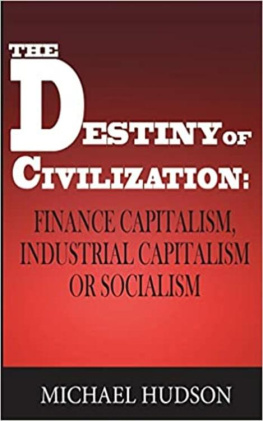
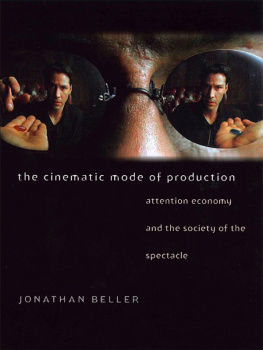
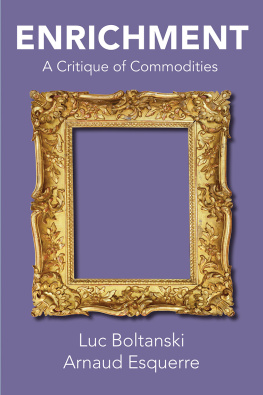
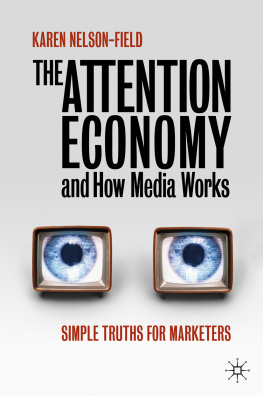
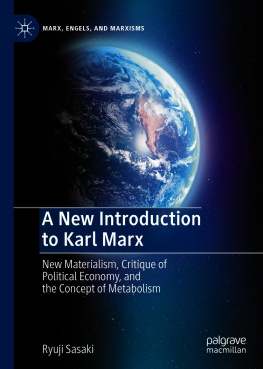
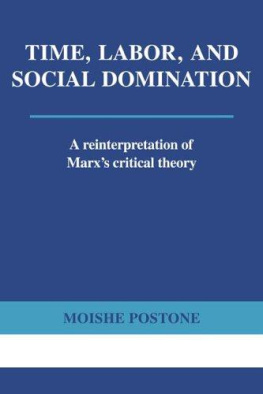
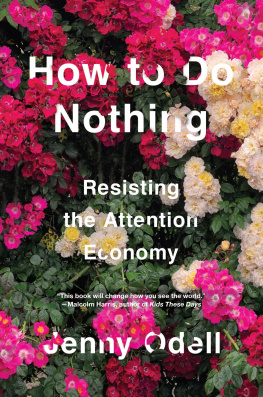
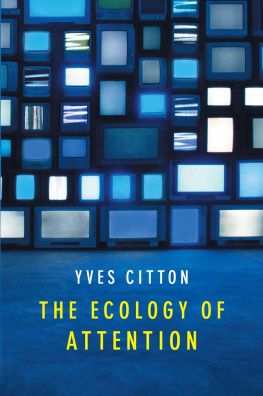
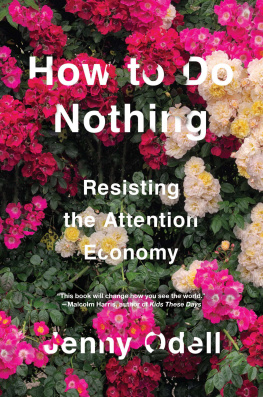


 The paper used in this publication meets the minimum requirements of American National Standard for Information SciencesPermanence of Paper for Printed Library Materials, ANSI/NISO Z39.48-1992.
The paper used in this publication meets the minimum requirements of American National Standard for Information SciencesPermanence of Paper for Printed Library Materials, ANSI/NISO Z39.48-1992.